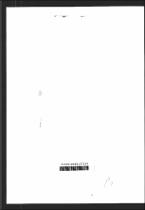| dc.contributor.advisor | Bloch, Greame | |
| dc.contributor.author | Manuel, Jeffrey Alexander | |
| dc.date.accessioned | 2022-09-22T10:15:18Z | |
| dc.date.available | 2022-09-22T10:15:18Z | |
| dc.date.issued | 1990 | |
| dc.identifier.uri | http://hdl.handle.net/11394/9319 | |
| dc.description | Magister Educationis - MEd | en_US |
| dc.description.abstract | This dissertation is an attempt at locating the connections that there exist between ideolog and education. To this end I have looked at the training of History teachers at Colleges of Education under the Department of Education and Culture in the House of Representatives.
My first move is an investigation into the conceptual frameworks within which the term ideology is located, This is done in Chapter One. In Chapter Two ideology is contextualized within the South African educational system. This is attempted by investigating the historical connections that there exist between ideology. and education in South Africa. In other words, a brief History of Christian National Ideology with specific reference to the training of History teachers in South Africa, is attempted. From this historical-theoretical analysis of ideology and History teacher training in South Africa, I proceed with an empirical and analytical critique of the current curricula prescribed for the training of History teachers. This is done in Chapter Three. Chapter Four discusses the different positions in South African Historiography. These positions are discussed as different debates contesting the dominant Christian National Histiography on which the History curricula for
teacher trainees are based. The first four chapters are purely historical and empirical analysis. Chapter Five develops a more theoretical and philosophical argument concerning the democratization of ,History teacher training and the ideological underpinnings of such notions as democracy, autonomy, accountability and bureaucracy. To this end a number of questions are raised concerning the philosophical and ideological underpinnings of such notions as democracy, autonomy, accountability and bureaucracy. The assumptions embedded in these notions and how they would affect democratic teacher training are unpacked in this chapter. | en_US |
| dc.language.iso | en | en_US |
| dc.publisher | University of the Western Cape | en_US |
| dc.subject | College of Education | en_US |
| dc.subject | History of Christian National Ideology (HCNI) | en_US |
| dc.subject | South Africa | en_US |
| dc.subject | Historiography | en_US |
| dc.subject | Department of Education and Culture (DEC) | en_US |
| dc.subject | House of Representatives | en_US |
| dc.subject | Afrikaner National Party | en_US |
| dc.title | Ideology and the training of history at colleges of education in South teachers Africa | en_US |
| dc.rights.holder | University of the Western Cape | en_US |

